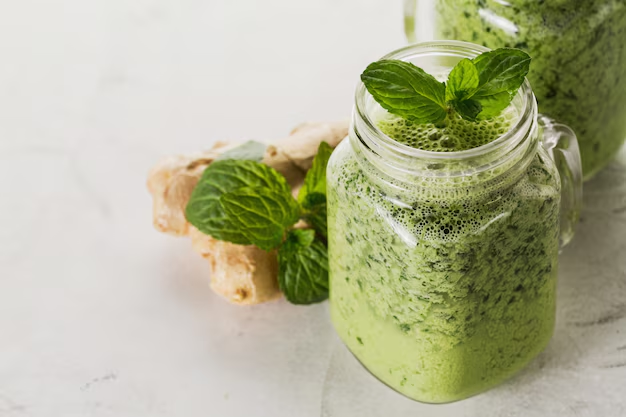Fermented foods have been a necessary piece of diets worldwide for centuries. From the tangy flavor of kimchi in Korea to the rich, mouthwatering taste of miso in Japan, fermented foods are wanting a rebirth in modern kitchens, and for exemplary reason. They offer a myriad of health godsends, primarily due to their probiotic content, and are a delicious way to add depth of flavor to meals. In this blog, we will explore the world of fermented foods, their uses, and how they’re making a response to contemporary diets.
What Are Fermented Foods?
Fermented foods are foods that have experienced a process of lacto-fermentation, where untamed bacteria feed on the sugar and starch in the food, creating lactic acid. This approach not only preserves the food but also creates wholesome enzymes, B vitamins, omega-3 fatty acids, and eclectic strains of probiotics. The most popular fermented foods enclose sauerkraut, kimchi, kombucha, yogurt, miso, and kefir.
Fermentation sweetens the nutritional range of these foods, making them better digestible. Historically, individuals relied on fermentation to preserve food in the absence of refrigeration. Today, individuals consume fermented foods not just for preservation, but for their unique savors and health-boosting belongings.
Health Benefits of Fermented Foods
The rise in the range of fermented foods can be largely attributed to their role in soil health. Probiotics, or the good bacteria encountered in fermented foods, are known to improve digestion by maintaining a healthy balance of gut flora. A diet rich in fermented food can help reduce the manifestation of bloating, constipation, and actually irritable bowel syndrome (IBS).
But the godsends of fermented foods don’t stop at the gut. Research shows that a healthy gut can entirely impact mental health. The gut-brain axis, a complex transmission network linking your core and brain, means that the health of your gut can influence your mood, cognitive function, and mental clarity. By devouring fermented foods, you’re not only stimulating your body but also keeping your mind.
In addendum to probiotics, fermented foods are rich in vitamins and minerals. They furnish a natural source of B vitamins, which are paramount for energy production and brain function. Many fermented foods, such as kimchi and sauerkraut, also offer high stations of antioxidants that help combat oxidative stress and inflammation.

Popular Types of Fermented Foods
There’s a vast array of fermented foods to explore, separately with its own characteristic flavor and health profile. Here are some of the most popular types:
- Kimchi: This Korean tack is made from fermented vegetables, mostly napa cabbage and radishes, and spiced with chili, garlic, ginger, and fish sauce. Kimchi is loaded with probiotics and is known for its anti-inflammatory belongings.
- Sauerkraut: A traditional German dish, sauerkraut is assembled from fermented cabbage. It’s rich in fiber, vitamin C, and probiotics, making it a gut-friendly powerhouse.
- Kombucha: This fizzy, savory drink is made from fermented tea and is loaded with probiotics. It has acquired popularity as a natural option for sugary sodas.
- Yogurt: One of the most well-known fermented foods, yogurt is made by fermenting milk with bacteria civilizations. It’s a great source of calcium, protein, and probiotics.
- Miso: A Japanese paste made from fermented soybeans, miso adds umami chasm to soups, marinades, and sauces. It’s rich in vitamins and probiotics.
- Kefir: Similar to yogurt, kefir is a fermented dairy product but with a thinner consistency. It’s loaded with probiotics and is often consumed as a drink.
How to Incorporate Fermented Foods Into Your Diet
Incorporating fermented foods into your diet is more leisurely than you strongly think. Add a spoonful of sauerkraut to your sandwiches or salads for a tangy kick. Mix kimchi into your rice bowls or tacos for an extra layer of flavor. Sip on kombucha as a rejuvenating, probiotic-rich alternative to sugary drinks. Start your day with a bowl of yogurt topped with new fruit and granola for a gut-friendly breakfast.
If you’re fumbling adventurous, you can even try assembling your fermented foods at home. Homemade sauerkraut and kimchi are relatively uncomplicated to make and can be customized to your taste picks.
FinaleFermented foods are more than just a passing trend—they are a delicious and nutritious way to keep your gut healthy, boost your resistant system, and sweeten your overall well-being. Whether you enjoy the spicy crunch of kimchi, the tartness of yogurt, or the refreshing fizz of kombucha, there’s an exhaustive world of fermented foods waiting to be researched. By making fermented foods a regular part of your diet, you can reap the healthiness godsends while appreciating their unique and diverse flavors. So, welcome the power of fermented foods and let your core—and taste budsTop of Form.







